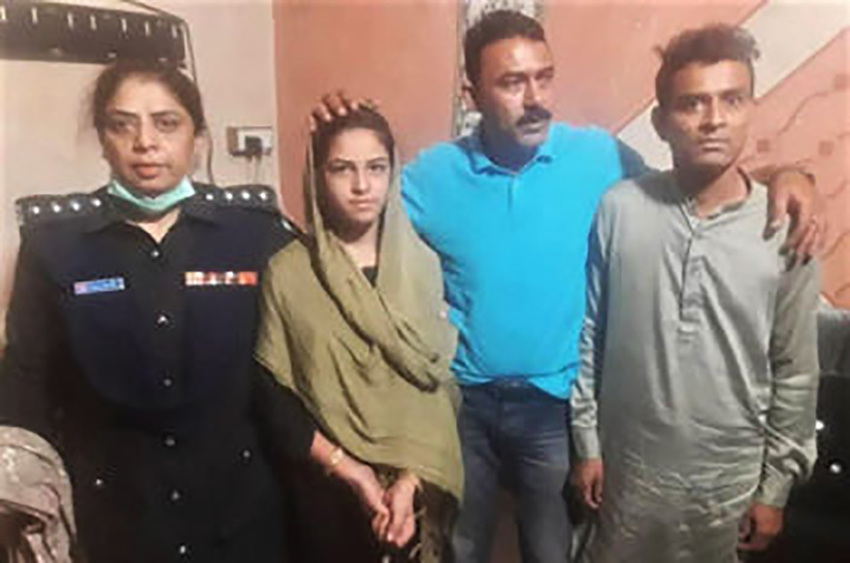Pakistani court nullifies child marriage of kidnapped Christian girl to Muslim man

A Pakistani high court has declared the marriage of 13-year-old Christian Arzoo Raja to 44-year-old Muslim Azhar Ali to be invalid. This decision overturns a previous court decision that declared the marriage valid.
On Oct. 13, Azhar kidnapped Raja from her home and "married" her. She signed papers saying that she had willingly converted to Islam and married Azhar, International Christian Concern’s South Asia Regional Manager, Will Stark, told The Christian Post. She probably did so while facing threats, sexual violence and torture, he added.
After a reversal of the court’s original ruling, the Sindh High Court board of medical experts verified that Raja was no more than 14 years old, International Christian Concern reported.
“Raja’s case is definitely heading in the right direction,” Stark said. “We’ve put to bed the age issue. We’ve all agreed that Raja is a minor. The marriage to Azhar is both null, void and illegal under the Sindh Child Marriage Restraint Act.”
Police have arrested Azhar along with the Muslim cleric who signed the marriage certificate for breaking the law, International Christian Concern reported. At present, the government is holding Raja at a shelter home.
The Sindh Child Marriage Restraint Act makes it illegal in Pakistan’s Sindh province to marry children younger than 18. But the invalidated marriage is only half of Raja’s case, Stark said.
Because Raja signed a paper saying she has converted to Islam, the court has not returned her to her parents, he said. In Pakistan, Christian parents cannot raise a Muslim child. Muslims can also be judged under Islamic law rather than secular law.
Arzoo’s family is Catholic, and the Catholic Archdiocese of Karachi has fought to contest her conversion, the Union of Catholic Asian News reported. Pakistan’s laws say people can only convert after they become adults at 18. The archdiocese filed a petition asking the court to follow the law on this subject.
“We have to fight this legally. Under the church and international laws, I don’t think any minor can change his/her religion. In Pakistan, children under the age of 18 follow the faith which is practiced by their parents,” said Father Saleh Diego, diocesan director of the National Commission for Justice and Peace and vicar general of the Archdiocese of Karachi.
The conversion document Raja signed also opens a loophole in the child marriage case, he said. Pakistan uses both secular and Islamic law in court. In Islamic law, a marriage can happen any time after a girl's first period, Stark said. The court could rule that since Raja entered the marriage as a Muslim, her marriage was valid even at 14 years old. Although unlikely, this outcome remains possible.
“Could we go back to square one? We definitely could,” Stark said. “Contacts on the ground say that if the court found the conversion was legal the case could be moved from the civil court to the Sharia court. But whether that will happen is fairly questionable.”
Pakistan’s Minister for Human Rights and the governor of Sindh Province have both spoken out against Raja’s child marriage, so it’s unlikely enough political will exists to overturn her case, Stark said.
In court, Raja said she wanted the court to release her to her husband and that she had married Azhar by her own will, International Christian Concern reported. Raja also said that her conversion to Islam happened of her own free will.
In similar cases, abductors have threatened captured girls so they would lie about their cases in court, Stark said. They shame victims to silence with sexual violence. It’s also possible that Raja still faces pressure from people at the government shelter, which often exerts strong pressure for women to embrace Islam, he said. Despite these problems, Raja’s case looks hopeful overall.
“It would be a surprise to me that the case would suddenly change direction again,” Stark said. “That would be saying these two high-powered politicians were wrong. Looking at the politics of it, that doesn’t seem likely to me.”


























